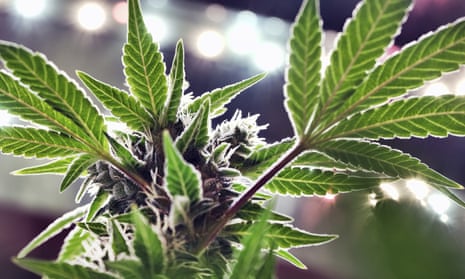Over 40% of Australians believe marijuana should be legalised, a figure that has nearly doubled since 2013, according to new analysis.
Australian researchers have looked into changes in public attitudes towards drug use over time, as measured by responses to the National Drug Strategy Household Survey.
The nationally representative surveys, last conducted in 2019, have been collating data on drug use and attitudes every two to three years since 1985.
A review of the survey data showed that 41.1% of respondents supported the legalisation of cannabis for personal use in 2019 – a significant rise from 25.5% in 2013.
Don Weatherburn, a professor at the University of NSW’s National Drug and Alcohol Research Centre and a co-author of the analysis, said the increase may be linked to growth in marijuana use.
The proportion of people who say they have used cannabis at some point in their lifetime has increased slightly over the last 20 years: 33.5% in 2001 up to 38.1% in 2019.
“It’s gradually become more prevalent, probably because the law has become less draconian,” Weatherburn said. “Most states now have some form of cannabis cautioning scheme, which makes the drug somewhat less stigmatised than it had been back in the 80s and 90s.
“It’s also partly true that the people who first tried cannabis are now in positions of authority in and around government and major institutions,” he said, citing the US, “where they had very harsh laws against cannabis to a situation now where you can legally sell it in many of the American states”.
While the researchers found strong support for legalising marijuana for personal use, their analysis showed that support for other illicit drugs was much lower.
“Support for legalising ecstasy and cocaine, although still low, has risen significantly since 2013,” Weatherburn said. In 2019, the proportions of people who wanted to legalise ecstasy and cocaine were 9.5% and 8.1% respectively.
The analysis found “a significant shift in support for treatment and education … away from prison and punitive sanctions,” he added. “Even though people are not supporting the legalisation of these drugs, they are supporting a different kind of approach to the traditional imprisonment, high fines, [and] supervised orders.”
Weatherburn attributes changing public attitudes to the advent of drug courts in the early 2000s and the success of drug treatment programs, as well as a sharper perceived distinction “between those who use drugs and those who sell them”.
Quick GuideHow to get the latest news from Guardian Australia
Show

Email: sign up for our daily morning and afternoon email newsletters
App: download our free app and never miss the biggest stories
Social: follow us on YouTube, TikTok, Instagram, Facebook or Twitter
Podcast: listen to our daily episodes on Apple Podcasts, Spotify or search "Full Story" in your favourite app
“People have come to … realise that the sanctions we used to impose on drug users are quite severe and there are other credible options such as treatment,” Weatherburn said.
“There doesn’t seem to have been any significant change in the level of support for legalising heroin or methamphetamine,” he added.
The study was published in the journal Drug and Alcohol Review.
